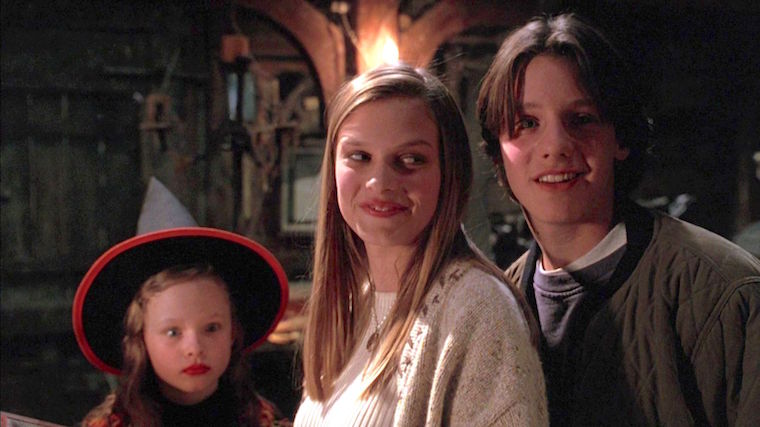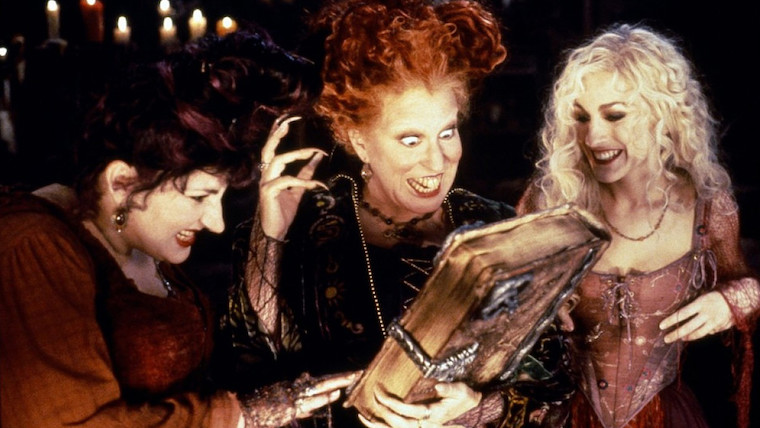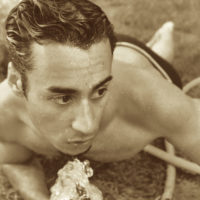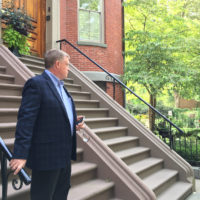There’s something to be said for nostalgia, and the way a movie seen in our childhood can become something powerful, even if it’s not that good. Case in point, or so I’m told, is ‘Hocus Pocus’. Sadly, or happily as the case may be, I didn’t see this when I was a kid (I’m just this side of too-old when it came out in the 90’s.) That means its charm is lost on me. Much like ‘Dirty Dancing’ when I finally got around to seeing it a couple of years ago. (She carried a watermelon – big fucking deal.)
I have my own love of mediocre films that I saw as a kid which mean something more than their objectively lackluster quality. {See ‘The Goonies‘ and ‘Adventures in Babysitting.’} But I also remember one or two that are actually quite good on their own. {See ‘Stand By Me.’} As for ‘Hocus Pocus’, it’s been growing on me, which is good, since it’s unavoidable for the remainder of this month. Thank Bette Midler for working that magic spell. Kathy Najimy and Sarah Jessica Parker don’t hurt either.
























